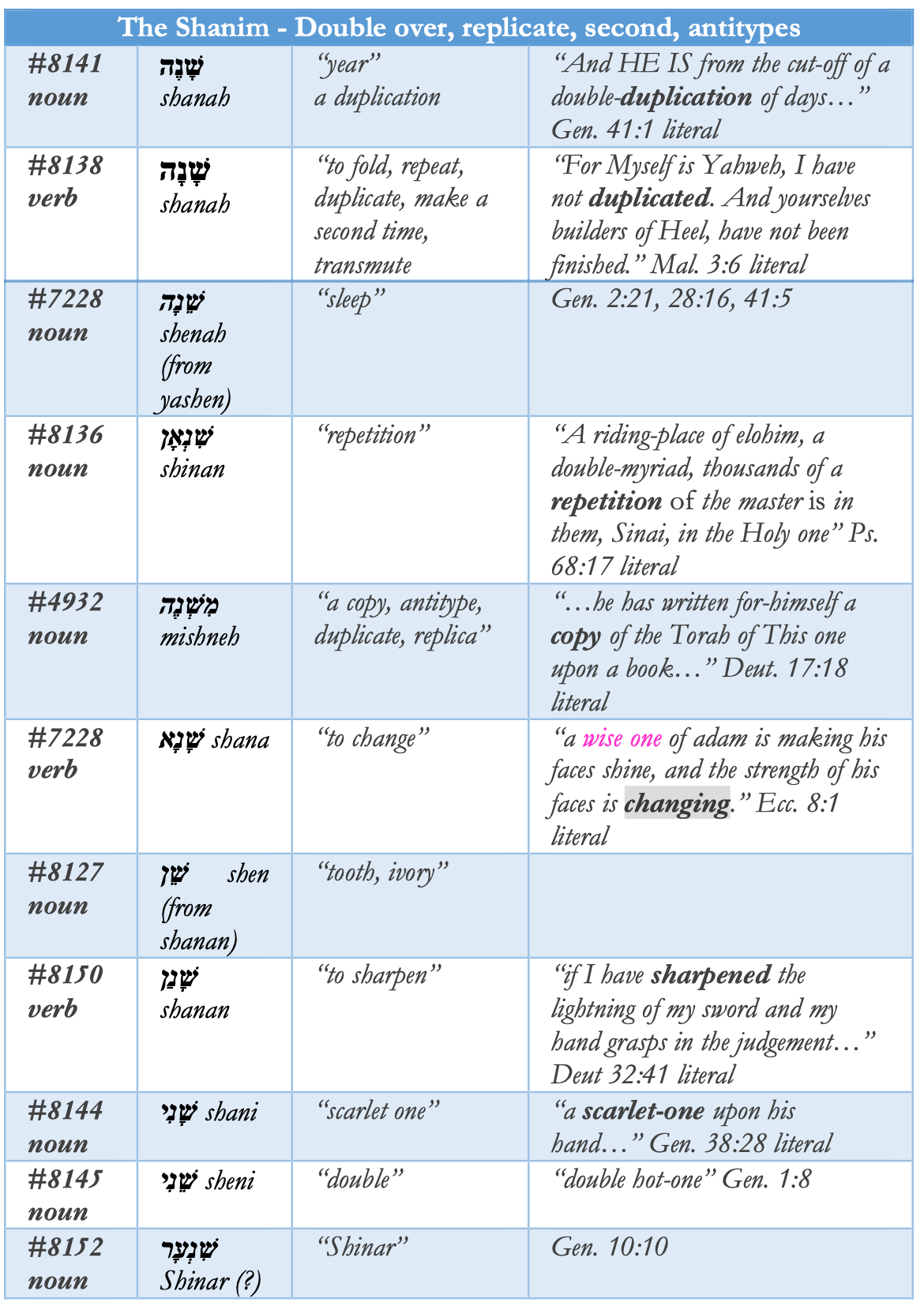 Genesis 1:14
Genesis 1:14

Separate Asunder
And mighty ones is saying, "He is a luminary within the Beaten Expanse of the Dual Heavenly Ones, to separate between the Day and between the Night, and they have become signs, and opportune times, and days, and dual ones!"30And God will say there shall be lights in the firmament of the heavens to separate between the day and between the night: and they shall be for signs and for set times, and for days and for years.
And God said, Let luminaries be in the expanse of the heavens, to divide between the day and the night. And let them be for signs and for seasons, and for days and years.
Error retrieving verse.
And God said, Let there be lights in the firmament of the heaven to give light upon the earth, to divide between day and night, and let them be for signs and for seasons and for days and for years.
Footnotes
| 29 | A Luminary המארת is derived from the root א־ו־ר (ʾ-w-r, “to give light”) in the mfʿōlet (מפעלת) pattern, which is typical for feminine nouns indicating an instrument or means of action—especially something that causes an action. In this case, it denotes "something that gives light", i.e., a luminary.
Thus, המארת is unmistakably feminine singular due to its morphology. |
| 30 | The Hebrew ושנים (ve'shnayim) translates to "and two". It is a masculine plural. How did they turn this into a feminine plural "years"? The word for year is feminine shanah. The masculine שנים means "scarlet ones/scarlet threads" or "twofold." The prepostion to/for which also acts as an accusative preposition, is present on all the words except shnayim. If it was meant to be "years" surely there would have been a preposition "for/to years" also? Strong’s #8141, shanah. This is the word for "year" and it is feminine. The plural of shanah would be שנות shanot. There is a strong correlation between "two" and "year" however. Noun derived from verb #8138, shanah, to repeat, fold, duplicate, transmute (change to higher form).
|
